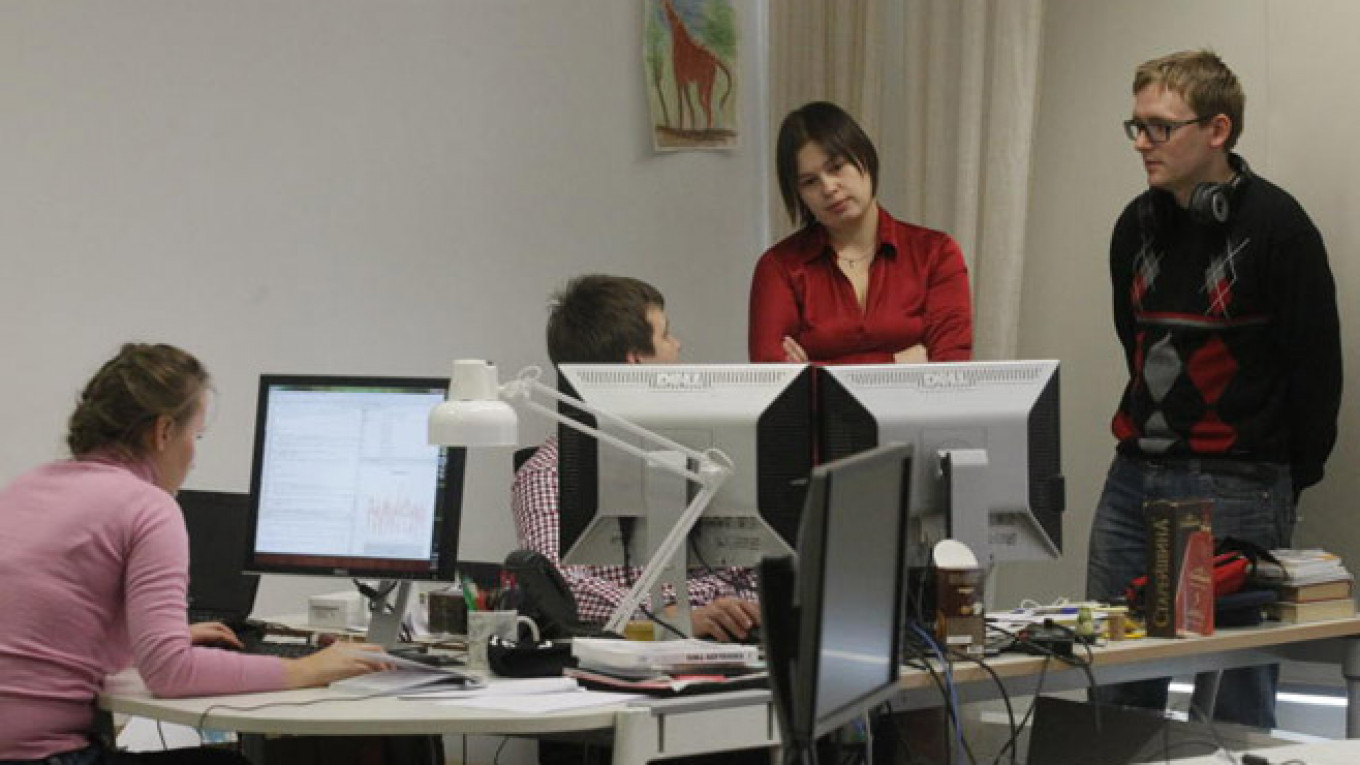In their first decline for five years, real wages in Russia fell 1.2 percent in August, hollowing out the spending power of Russian consumers amid an economic slowdown that shows no sign of quitting, business newspaper Vedomosti reported Monday, citing data from Russia's statistics agency, Rosstat.
Real wages, or wages adjusted for inflation, last fell in November 2009, the year when the global financial crisis wiped 9 percent off Russia's gross domestic product.
Rosstat blamed the August fall on the one-two punch of slowing nominal wage growth and rapidly rising inflation. Russia's inflation rate has climbed from 5-6 percent to 8 percent as falling oil prices, Western sanctions on Russia over its role in Ukraine, and Moscow's retaliatory ban on Western food imports all drive up prices.
The quickening pace of inflation means that state employees — who number more than 14 million, or one out of every five Russians in employment, according to Moscow's Higher School of Economics — will see real-terms wage cuts. Next year's budget plans to raise civil servant salaries by on average 5.5 percent.
Across wide swathes of the private sector things look no brighter. Economic growth has slowed to around 0.5 percent, while business sentiment is at rock bottom.
The new data will only add to the funk: The fall in real wages will "kill consumption growth," which will likely fall by next month, Igor Polyakov, an analyst at the Center for Macroeconomic Analysis and Short-Term Forecasting, told Vedomosti. Rapidly rising consumption had been a major growth driver, meaning that growth projections for next year — already meager — may see downward revisions, he said.
A Message from The Moscow Times:
Dear readers,
We are facing unprecedented challenges. Russia's Prosecutor General's Office has designated The Moscow Times as an "undesirable" organization, criminalizing our work and putting our staff at risk of prosecution. This follows our earlier unjust labeling as a "foreign agent."
These actions are direct attempts to silence independent journalism in Russia. The authorities claim our work "discredits the decisions of the Russian leadership." We see things differently: we strive to provide accurate, unbiased reporting on Russia.
We, the journalists of The Moscow Times, refuse to be silenced. But to continue our work, we need your help.
Your support, no matter how small, makes a world of difference. If you can, please support us monthly starting from just $2. It's quick to set up, and every contribution makes a significant impact.
By supporting The Moscow Times, you're defending open, independent journalism in the face of repression. Thank you for standing with us.
Remind me later.






